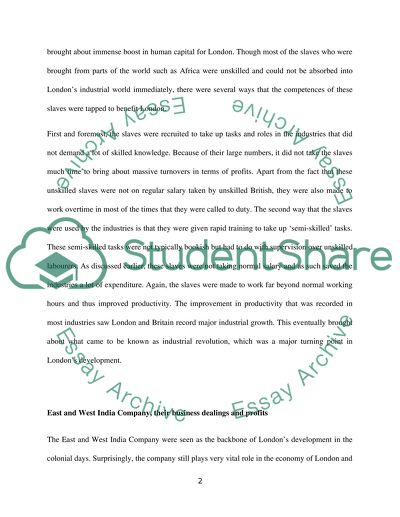Cite this document
(“What role did colonial trade play in the development of London Essay”, n.d.)
Retrieved from https://studentshare.org/history/1430758-what-role-did-colonial-trade-play-in-the
Retrieved from https://studentshare.org/history/1430758-what-role-did-colonial-trade-play-in-the
(What Role Did Colonial Trade Play in the Development of London Essay)
https://studentshare.org/history/1430758-what-role-did-colonial-trade-play-in-the.
https://studentshare.org/history/1430758-what-role-did-colonial-trade-play-in-the.
“What Role Did Colonial Trade Play in the Development of London Essay”, n.d. https://studentshare.org/history/1430758-what-role-did-colonial-trade-play-in-the.


